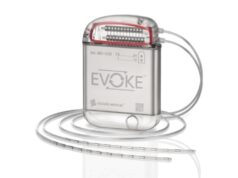
Pain physicians have urged the Cochrane Library to retract and revise a recent review of spinal cord stimulation (SCS) in the treatment of low back pain, citing “striking errors” across the publication’s methodology, executions and conclusions.
Writing in the Cochrane Database of Systematic Reviews earlier this year, lead researcher Adrian Traeger (Sydney Musculoskeletal Health, Sydney, Australia) and colleagues concluded a Cochrane review of the existing literature by stating that SCS therapy does not provide long-term relief or sustained benefits, and may cause harm.
However, the veracity of these findings and how they were reached have since been challenged via a commentary piece from Shravani Durbhakula (Johns Hopkins School of Medicine, Baltimore, USA) et al, published in the journal Pain Medicine.
“Generalisations about CLBP [chronic low back pain] care interventions—drawn from data limited by narrow search criteria—are problematic and misleading,” Durbhakula and colleagues assert. “The reader is left questioning whether Traeger et al intended to provide a balanced assessment of the published literature on SCS for CLBP from conception, given their 2020 letter to the editor, and stated conflicts of interest that include royalties from two books: Surgery, the ultimate placebo and Hippocrasy: How doctors are betraying their oath.
“Furthermore, while a pain physician was acknowledged at the end of the publication, the extent of this physician’s involvement was too limited to warrant authorship. Inclusion of a physician author with content expertise in pain medicine and neuromodulation could have offered insight into the limitations addressed here, provided a balanced interpretation of the published literature, and aided with recommendations of appropriate scope.”
Durbhakula et al state that the review contains “significant methodological issues”, adding that its authors “extrapolate questionable findings to generate overreaching conclusions” that have the potential to negatively impact the care of CLBP patients.
One point they are particularly critical of is Traeger et al’s identification of parallel-arm studies that evaluate SCS plus conventional medical management (CMM) versus CMM alone—describing the authors’ interpretation and inclusion/exclusion of such studies as “misguided”. In addition, they claim the authors have effectively “grouped apples and oranges” with the three parallel, medium follow-up trials originally included in their subanalysis.
“We re-emphasise that the populations in the Kumar et al, Rigoard et al and Kapural et al studies are too distinct for inclusion in a meta-analysis of low back pain, and that Kumar et al should have been excluded as it enrolled patients with predominantly leg pain over low back pain,” Durbhakula and colleagues elaborate as part of a separate, later letter to the editor, which is also published in Pain Medicine.
In addition to pointing out that the SCS modalities used differed across the included parallel-arm studies, the authors go on to criticise the removal of one of these three studies prior to secondary analyses on “questionable grounds”.
“The elimination of an outlier when there are only two studies is nonsensical and raises serious concerns about Traeger et al selectively ‘cherry-picking’ studies to fit an agenda […],” they continue.
Durbhakula and colleagues argue that, as such, the authors’ conclusions on SCS’ probable lack of efficacy are derived from a single study—a single study from 2022 that carries “many flaws” and a “lack of validity” described by several pain physicians and scientists working in neuromodulation across the globe.
“We respectfully urge the Cochrane Library to retract and revise the Traeger et al study or, at minimum, publish a corrigendum addressing our concerns,” Durbhakula et al conclude.
They go on to state that an appropriate revision should include re-evaluation of the search methodology to ensure a comprehensive selection of studies; appropriate interpretation and synthesis of studies based on their inclusion/exclusion criteria, allowing for valid findings; diversification of authorship to include contributions from individuals with clinical and content expertise in neuromodulation for CLBP; and conclusions of appropriate scope.
“By doing this, the Cochrane Library can contribute to a more accurate and balanced understanding of SCS for CLBP, ultimately benefitting patients, clinicians, researchers, payers, and policymakers,” the authors add.










